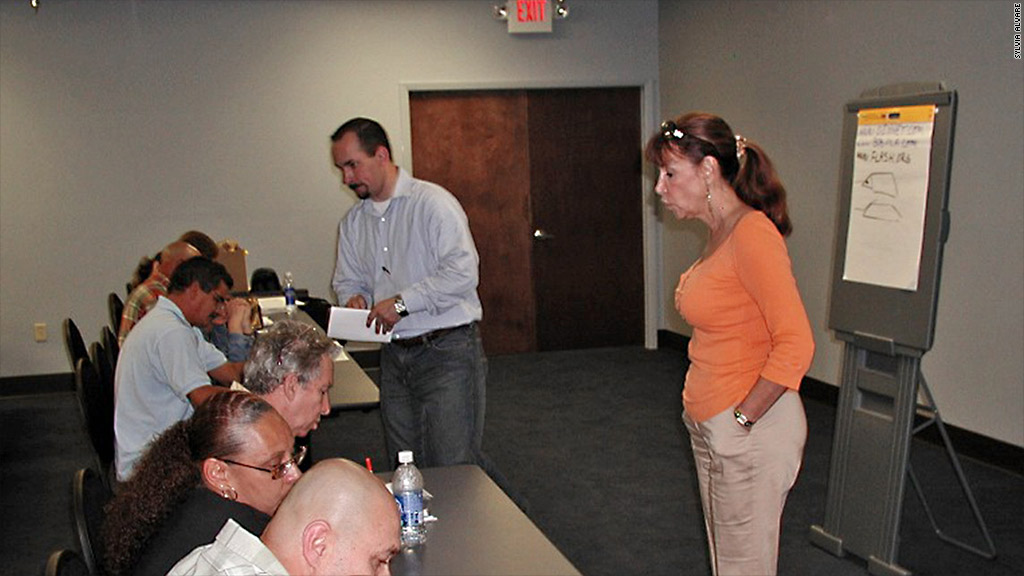
Tampa homeowners probably need the government's help more than in other places.
After all, Florida's Tampa Bay reported the nation's third highest rate of foreclosures as recently as May. But those seeking in-person help from the government will be out of luck.
The federal housing department, which handles such things as emergency placements for the evicted and the newly homeless, is slated to shutter its office in the area within the next four months.
It is among 16 field offices of the U.S. Department of Housing and Urban Development that will close as part of the agency's plan to trim costs and "create efficiencies." Four of those offices serve eight cities with the highest rates of foreclosures.
"We need the boots on the ground in Tampa to help us deal with the housing crisis. Now is not the time to pull out," said Sylvia Alvarez, executive director of the Housing and Education Alliance, a nonprofit group that helps people with housing issues in Tampa.
According to a HUD memo, all the closures were "based on the business needs of the Department." The 80 field offices spread across the country is just too many, according to a HUD official. The official also said that a majority of cases are handled over the phone, or online, and only about 10% of the people actually walk into HUD offices. Besides, not all of the offices, including Tampa's, even have foreclosure experts.
But nonprofit workers on the ground say HUD offices work as a clearing house for people who have lost homes and need to get a roof over their heads within a day.
"When individuals show up on their door step, the HUD staff figures out what the problem is and directs them to the appropriate agency or group," said Alvarez, whose group helps foreclosed homeowners sent her way by HUD's Tampa staffers.

Union officials say the reorganization comes at a really bad time for struggling communities that are dealing with complex foreclosures.
"Making a phone call is a lot harder than sitting down with someone and making some tough decisions on what you need," said Liz McDargh, a national president with the National Federation of Federal Employees.
She also questions the logic behind the distribution of closures.
Florida, with 20 million people, will have two HUD field offices in Jacksonville and Miami, down from four. In May, Florida cities claimed 10 of the top 25 highest numbers of foreclosure rates in May.
By comparison, Tennessee, which has 6 million residents, did not have any cities in the top 25 most troubled housing markets. And yet, the state will retain all three of its field offices.
Related: HUD budget cuts
The massive reorganization also plans to move hundreds of federal workers at HUD's multi-family housing programs from all 50 states into 10 major offices in big cities.
It's been in the works for several years, in response to a White House executive order for agencies to create efficiencies and reduce redundancies. The HUD changes will save between $51 million and $65 million when it's all done.
The HUD consolidations coincide with forced federal budget cuts called "sequester," which is also trimming hundreds of millions from the agency's budget and forcing it to shut down for seven days, when its employees are on furlough.
The reorganization will also force 900 employees -- some 10% of the HUD workforce -- to relocate, sometimes hundreds of miles away. The other option is to retire or leave the federal work force with up to a $25,000 buyout.
If up to 75% of the affected employees take the buyout, HUD will achieve the maximum savings. More than 40% of HUD's staff will be retirement eligible in the next three years.
The agency says shrinking the workforce is not its goal.
"One thing we're not doing, is looking to lay off employees," said HUD Secretary Shaun Donovan in a web video explaining the changes. "There will be a transition period that allows folks to make decisions for themselves with respect and with time."


